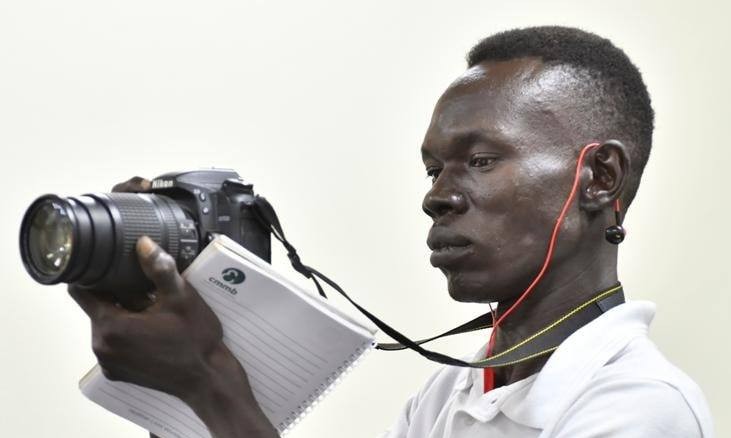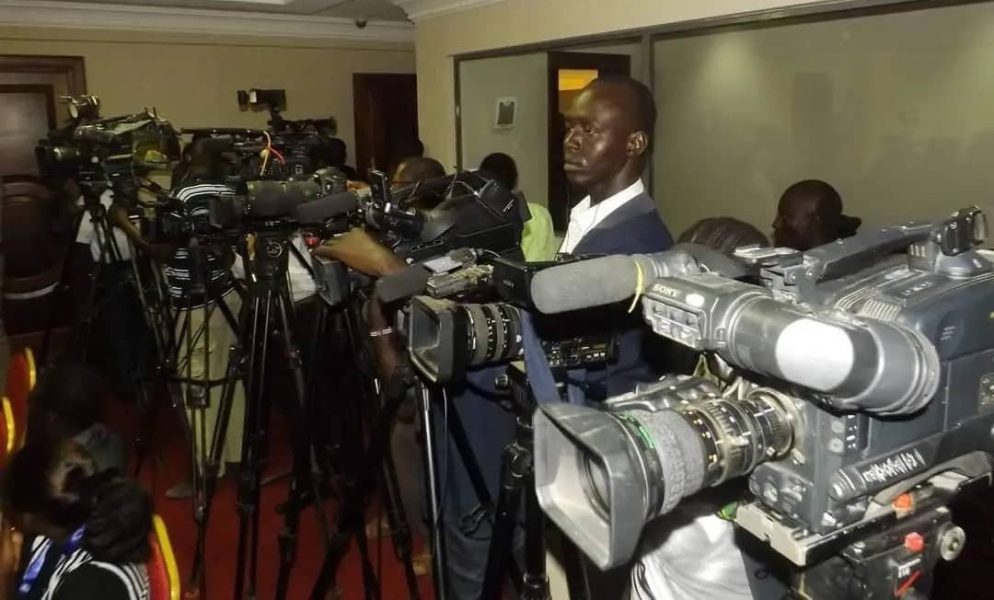
William Maduok, a journalist with KING MEDIA in South Sudan, knows too well the cost of pursuing public interest stories in a country where media freedom is frequently undermined. Last year, he was assigned to investigate a sensitive case involving a powerful institution. Though he withholds its name for fear of reprisal, his experience speaks volumes about the systemic barriers journalists face in South Sudan.
Armed with a notepad and a deep sense of journalistic duty, Maduok prepared questions and approached the institution in good faith. Instead of cooperation, he was met with silence. His attempts to gather information were ignored.
It wasn’t the first time. Time after time, he found himself chasing stories that led to dead ends. In some cases, he had no choice but to drop the story entirely. In others, he published imbalanced reports, something he says violated his professional ethics.
“I’ve been practicing journalism for almost five years,” he explained, “and there are stories I’ve seen removed from publication simply because I couldn’t get the other side. I don’t know if it was intentional or not, but it keeps happening.”
Maduok’s experience is far from unique. Across the country, many South Sudanese journalists report similar challenges, chief among them, denial of access to information by public institutions. This defiance comes in spite of strong legal guarantees enshrined in both the Access to Information Act of 2013 and the Transitional Constitution of South Sudan, 2011 (as amended).
According to Section 6(1) of the Access to Information Act, “Every citizen shall have the right to access information and records in the custody of any public or private body performing a public function.” The Act further stipulates that a request for information cannot be rejected simply because of procedural issues.
In harmony with this, Article 32(1) of the Transitional Constitution states that “Every citizen has the right of access to official information and records, including electronic records, in the possession of any level of government or any institution or agency thereof.”
Article 24(1) of the same Constitution guarantees “the right to the freedom of expression, reception and dissemination of information, publication, and access to the press.”
Despite these provisions, the gap between law and practice remains wide. For Maduok and others, the promise of transparency exists only on paper.
Commomerated on May 3, of every year, journalists in South Sudan used the World Press Freedom Day to reflect on their daily struggles.

Yiep Joseph, a reporter at No. 1 Citizen Newspaper, voiced concerns over how institutional opacity hampers the role of the press in holding power to account.
He called for the strengthening of self-regulation within media houses and emphasized the need for security forces to receive proper training on the role of journalists in a democratic society.
“The Media Authority should encourage self-regulation, and security officers must be trained to understand that journalists are not enemies of the state but watchdogs serving the public interest,” he urged.
The situation is especially dire for photojournalists like Nyanling Jenifer, a senior reporter with The Dawn newspaper. Jenifer recounted how simply carrying a camera on the streets of Juba invites suspicion and harassment.
She is often questioned by security officers while interviewing sources in public, an experience she finds both intrusive and discriminatory.
“When I carry my camera and start interviewing people, some officials immediately approach and question me,” she said. “But those who carry guns around the city are never questioned. Why?”
Jenifer also described the chronic difficulty of accessing information from government offices and the emotional toll of frequent harassment. “There’s a culture of secrecy that undermines our work and our safety,” she said.
Responding to these growing concerns, South Sudan People’s Defense Forces spokesperson Gen. Lul Ruai Koang defended the army’s record. Addressing the media recently, Gen. Lul stated that the military had made efforts over the past nine years to improve its relationship with the press.
He noted that the army had engaged openly with media platforms and remains committed to supporting press freedom.
“Our stance as an army has been supportive of press freedom,” said Gen. Lul. “But we ask journalists to allow time for verifying sensitive information, especially when coordination with field commanders is required.”
While his reassurance may offer some comfort, journalists like Maduok, Yiep, and Jenifer continue to navigate a professional environment fraught with challenges. Their stories are a testament to the resilience of South Sudan’s press, which continues to operate against the odds.
The constitutional and legal frameworks offer a pathway for reform. But until laws are fully implemented and respected by those in authority, press freedom in South Sudan will remain a right that is spoken of more than it is practiced.

